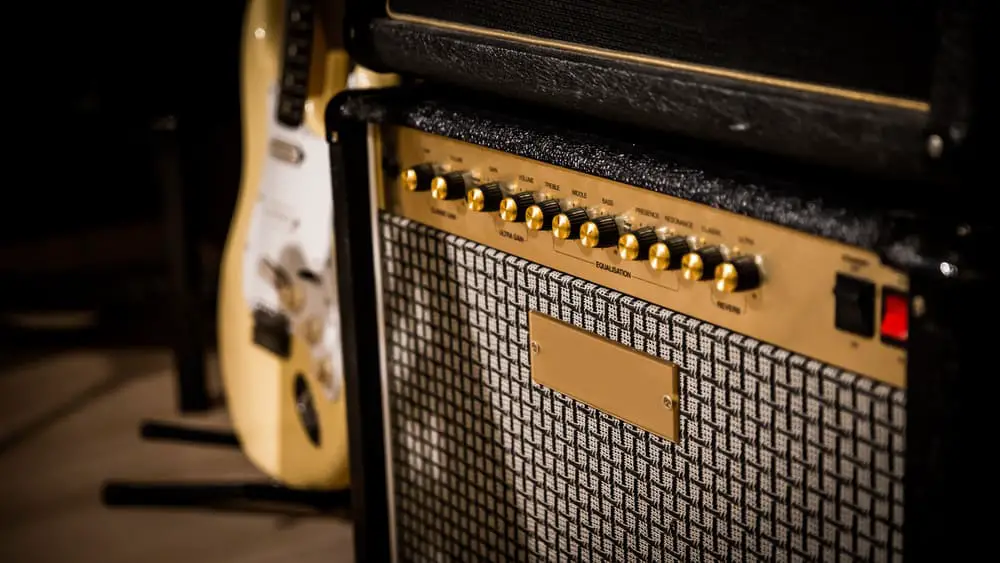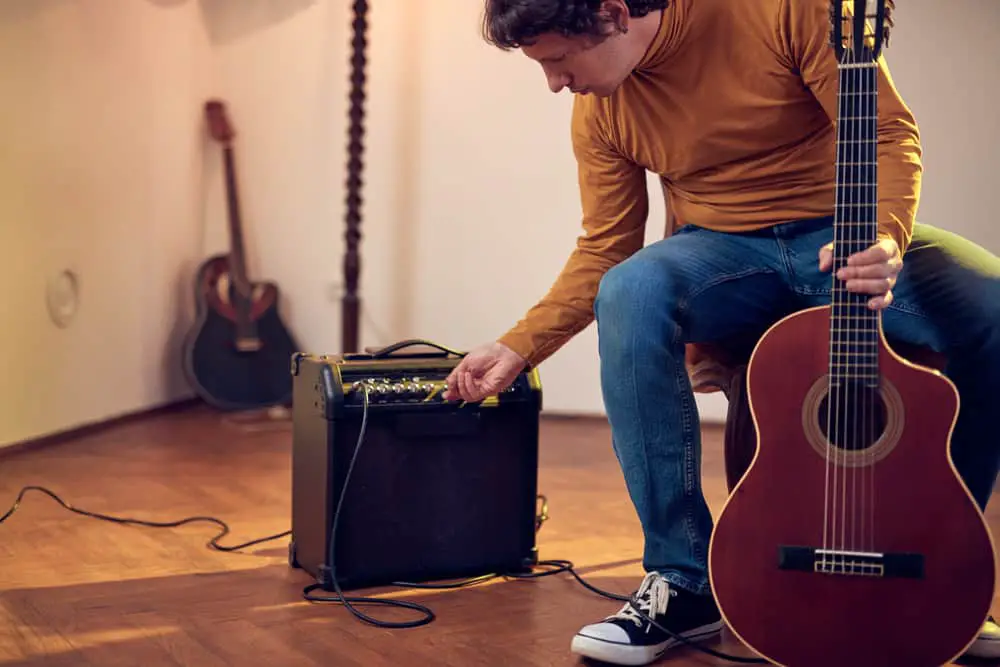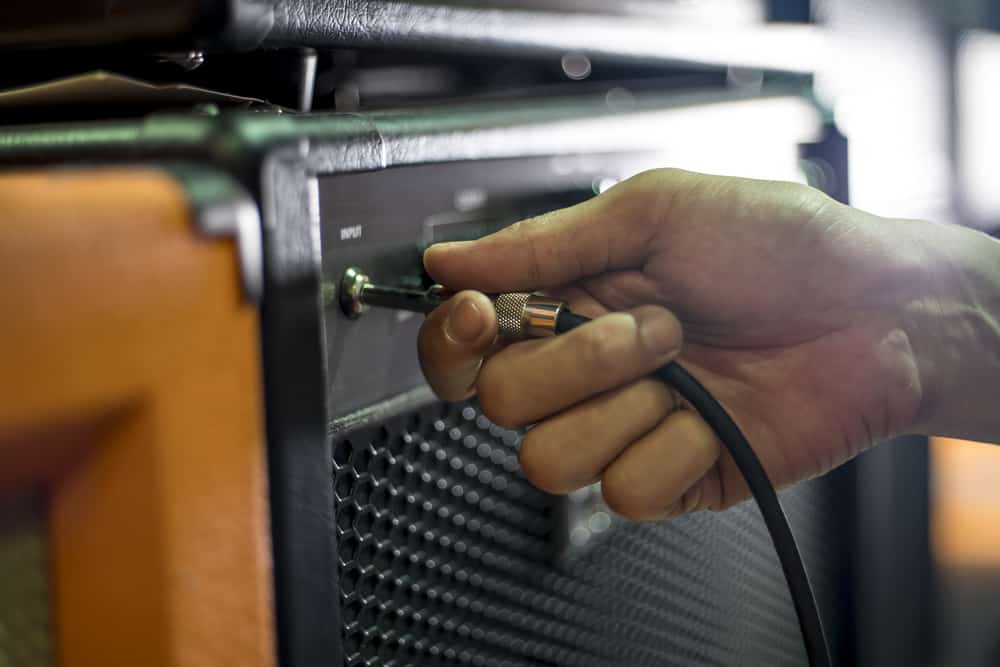
You bought a new guitar amp, and you’re excited to use it. But when you plug it in and turn it on, you hear a loud buzzing noise. Now you’re wondering, why is my guitar amp buzzing?
Several different things can cause guitar amp buzzing. It could be something as simple as a loose cable or a bad ground connection. Or it could be something more serious, like a problem with the power supply. It can also be caused by electrical interference from other devices or a faulty component in the amplifier itself.
This article contains information about the most common causes of guitar amp buzzing and what you can do to fix it. Let’s get started!
Reasons Why Your Guitar Amp Is Buzzing

If you’re a guitar player, you know that there’s nothing worse than having your amp buzz. It is incredibly annoying and can interfere with your playing and make it difficult to hear yourself over the noise.
There are many reasons why your guitar amp might be buzzing. Some of them are pretty technical.
Here are a few of the most common causes:
Pickups
Your pickups are what pick up the sound from your strings and amplify it. If they’re not correctly shielded, they can pick up electrical interference from things like a TV, radio power lines, or lights. This interference can cause your amp to buzz.
Grounding Issues
If there’s a problem with the grounding of your amplifier, it can cause a buzzing sound. This is usually due to a loose cable or an issue with the power supply. Grounding issues are generally pretty easy to fix.
Loose Cable
A loose cable can also cause your amp to buzz. If one of the cables connecting your amp to the speakers is loose, it can create an electrical connection that causes a buzzing sound.
Power Supply Issues
If your power supply is faulty, it can cause your amplifier to buzz. It is usually due to a problem with the AC power supply or the DC power supply. A faulty power supply can also cause other problems like intermittent sound or distortion.
Dirty Pods
Dirty pods can be a major cause of guitar amp buzzing. If the pods aren’t clean, they can become clogged with dust, dirt, and other debris. This can cause an electrical connection that causes a buzzing sound.
Faulty Components
If there’s a problem with one of the components in your amplifier, it can cause the amplifier to buzz. It is due to a problem with the power transistors or the output stage.
While there are many other potential causes of amplifier buzzing, these are some of the most common. If you’re experiencing this issue, check these things first to see if you can identify the problem.
How To Fix a Buzzing Guitar Amplifier?

Now that you know some of the reasons why your guitar amp might be buzzing let’s talk about how to fix it.
Fixing a buzzing amplifier is usually pretty simple, but it can be tricky if you’re not familiar with electronics.
Here are some tested solutions:
Check Your Cables
The first thing you should do is check your cables. If you’re using a bad cable, it can cause problems, including a buzzing sound. Make sure you’re using a good-quality instrument cable, and if you’re not sure, try borrowing one from a friend.
Check Your Pickups
If your pickups are the problem, there’s not much you can do about it except replace them. Pickups are relatively cheap, so it’s worth trying a different set to see if that fixes the problem.
Roll Off the Volume
If you’re getting a buzzing sound when you turn up the volume, try rolling off the volume knob on your guitar. This will help to reduce the amount of noise coming from your amp.
Repair Your Amp
If your amp is the problem, you’ll need to take it to a qualified technician to have it repaired. This is usually not a very expensive fix, but it’s essential to ensure that the problem is actually with your amp and not with something else in your setup.
Repair Cords and Equipment
If you have any damaged cords or equipment, it’s essential to get them repaired or replaced as soon as possible. Damaged equipment can cause all sorts of problems, including a buzzing sound.
Safety Precautions During Amp Repair
When performing any amp repair, it’s necessary to take precautions to prevent injury. Amp units contain high voltages that can cause electricity to arc, which can be dangerous.
To help ensure your safety, follow these guidelines:
- Unplug the unit before beginning any repair work.
- Take off any jewelry that could come into contact with high voltage areas.
- Wear shoes to protect your feet in case of an electrical shock.
- Cover any exposed skin to minimize the risk of burns.
- Use caution when handling components and wires, as they may be live even when the unit is unplugged.
- If you feel unsure or unsafe at any time, it is best to stop and seek professional help.
- Always have a qualified technician to perform repairs on high voltage components.
You can help prevent injuries when performing amp repairs by following these safety precautions.
Conclusion
So, there you have it. Five ways to fix a buzzing guitar amplifier. Which one are you going to try first? And don’t forget, if all else fails and you can’t seem to find the source of the problem yourself, take your amp to a professional and let them look at it.
It might be something simple that you could have fixed on your own, but it’s always better to be safe than sorry. With the easy-to-follow safety precautions, anyone can safely repair their amplifier and eliminate that annoying buzzing sound.
We hope this article has helped give you some ideas. Thanks for reading!
Frequently Asked Questions
Humming can be caused by a variety of things, including a poor quality power supply, a ground loop, or too many cables. Shielding your electronics cavity, using shielding tape on your cables, and keeping only a few cables can help eliminate hum.
To ground a guitar amp, you need to plug it into a socket with three prongs. This will create a ground circuit and help to reduce the noise floor.









